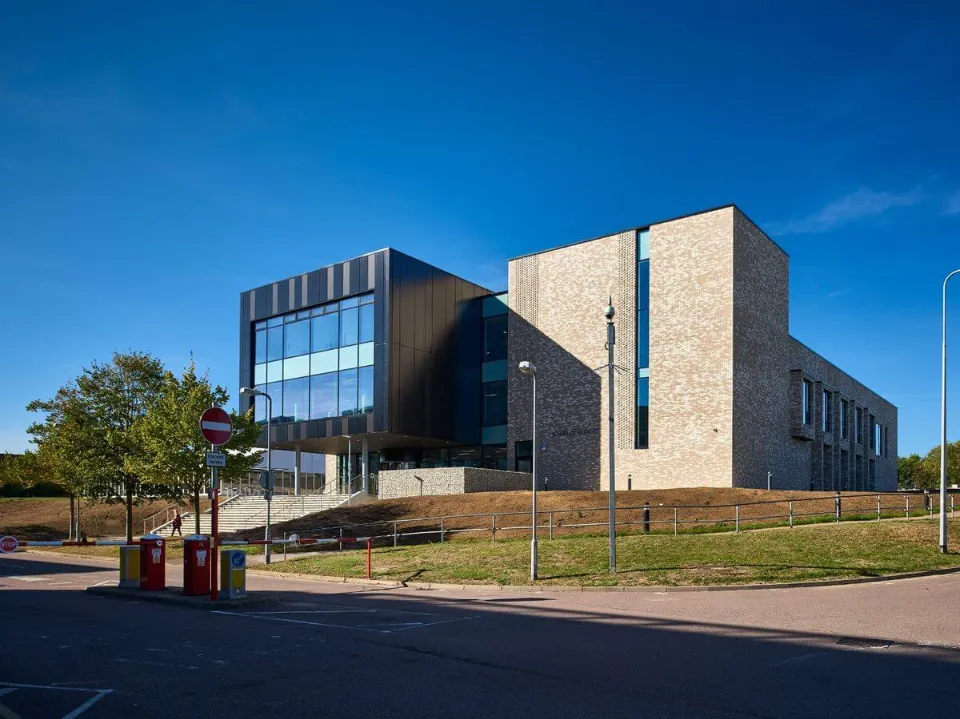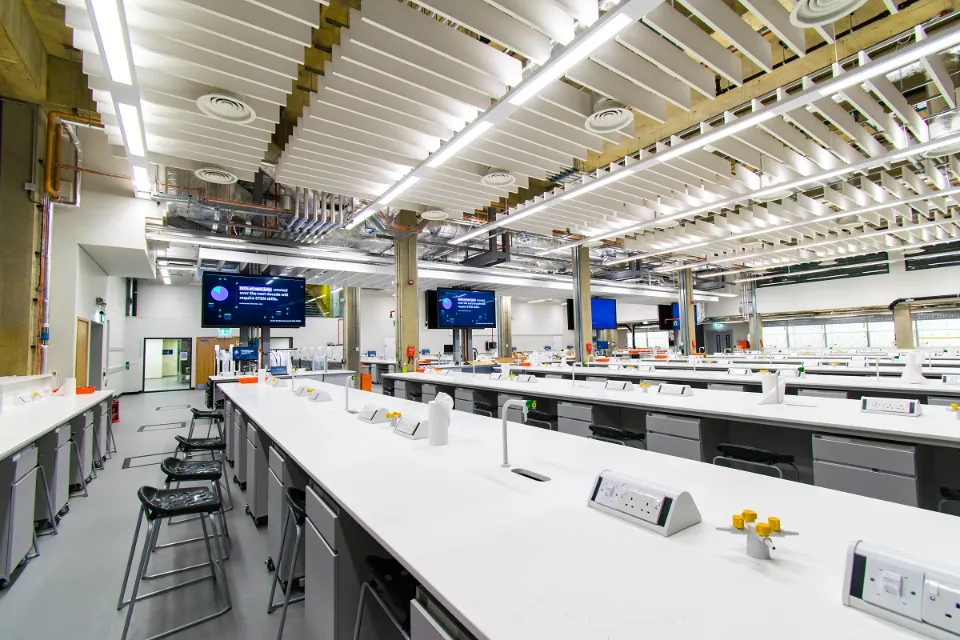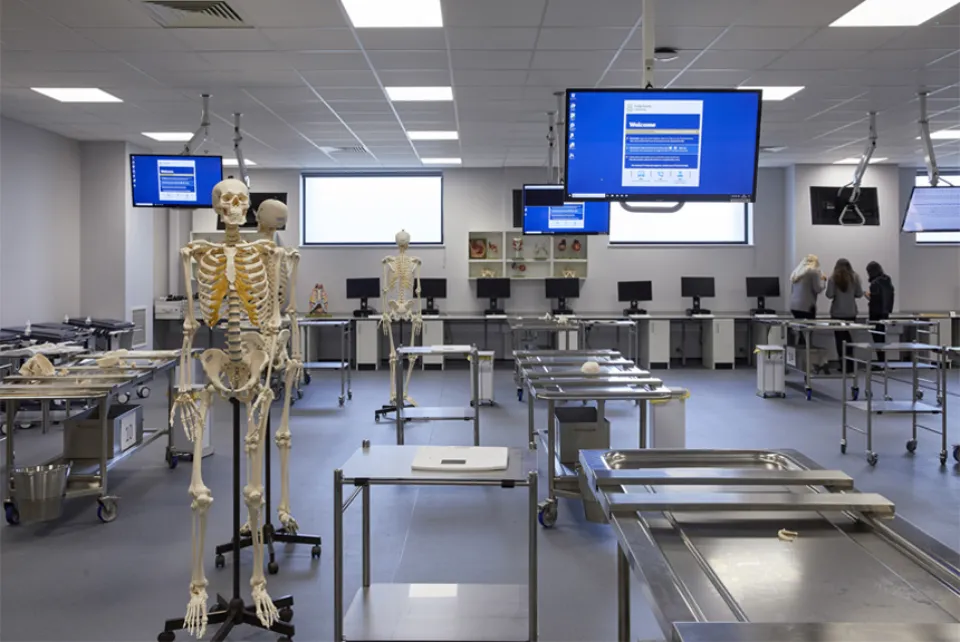Want to enter Anglia Ruskin Medical School? Here is a brief guide to the entry requirements of Anglia Ruskin Medical School.
Anglia Ruskin University School of Medicine runs a Medicine (A100) course, at their Chelmsford campus, in Essex, England. Anglia Ruskin University School of Medicine uses the Multiple Mini Interview (MMI) formats for its interviews.
This Anglia Ruskin profile highlights the entrance requirements for this medical school.
Overview of Anglia Ruskin Medical School
In September 2018, Anglia Ruskin University inaugurated its medical school. As one of the more recent medical schools, you’ll gain access to state-of-the-art facilities, including a complete cadaveric dissection suite. The Essex Cardiothoracic Centre and St Andrew’s Centre for Plastic Surgery and Burns are just two of the tertiary facilities that are accessible to the course’s Chelmsford, Essex location’s five acute care providers.
If you meet the minimum academic requirements, ARU will only shortlist candidates for interviews based solely on the UCAT. This makes it the perfect option for students who perform well on the UCAT but have lower GCSE or prior academic performance. Their previous cut-off scores sit around the mid-2400s so if you exceed this score there is a good chance you’ll receive an interview invite!

Anglia Ruskin Medical School Entry Requirement
- Work experience expectations: It is preferable for applicants to have experience working in the healthcare industry, whether it was through volunteering, paid work, shadowing, or other forms of experience. Experience in both clinical and non-clinical settings, such as GP offices, hospitals, nursing homes, nurseries, charities, and volunteer organizations, as well as in pharmacies, is crucial. MMIs will cover the topic of work experience.
- Admissions test: If candidates meet our primary academic entry requirements, they will be invited to an interview day and will be ranked according to their UCAT score. For September 2019 entry and later, candidates who received a Band 4 SJT score (the lowest band) will not be invited for an interview.
- Personal statement usage: When making the interview shortlist, the personal statement is not taken into account. Candidates should anticipate having their personal statement questioned when they are called in for an interview.
- Interview type: Communication skills, critical thinking, moral reasoning, teamwork & leadership, empathy, problem-solving, and interpersonal skills are among the criteria used to evaluate candidates. Anglia Ruskin is conducting interviews remotely for the 2021 cycle while maintaining the MMI format. A “preparation session” is held for candidates the week before the interview to make sure they are familiar with the technology.
- Coursework subjects expected:Biology (acceptable option), Chemistry (acceptable option), Maths (acceptable option), Physics (acceptable option)
Interview Information
Anglia Ruskin University School of Medicine uses the Multiple Mini Interview (MMI) formats for its interviews. It states that you must complete six stations or mini-interviews, each lasting six minutes.
The interviewers will evaluate your drive to pursue a career in medicine as well as the traits and values that make you a good fit for the program. Anglia Ruskin outlines the following areas that will be tested during your MMI:
- Communication skills
- Critical thinking
- Moral reasoning
- Teamwork and leadership
- Empathy
- Problem-solving
- Interpersonal skills
For each station, you’ll be scored on your communication and interpersonal skills, your initiative and problem-solving, and your personal integrity and moral reasoning. On Anglia Ruskin’s page titled “Our Multiple Mini Interview process,” you can find more details about the MMI and how it is evaluated.

For September 2023 entry, interviews will take place on campus on the following dates:
- 5 – 9 December 2022
- 12 – 13 December 2022
- 5 – 6 January 2023
- 9 – 13 January 2023
- 16 January 2023
Course Structure at Anglia Ruskin Medical School
Through student-selected components, you will have the opportunity to focus your study on a particular subject throughout your five years of medical school. You will also have the chance to complete a placement, learn about anatomy and physiology, and delve into medical specialties like public health, palliative care, and infection control.
Year 1 at Anglia Ruskin Medical School
The course structure at ARU is systems based for the first 3 years. The cardiovascular system, the respiratory system, the digestive system, and the basic principles of medicine are all covered in year 1. You’ll study each system’s anatomy, physiology, pharmacology, pathology, embryology, etc.
Additionally, there is a student-selected component that requires you to conduct research on and write a literature review about a subject of your choosing. Along with doing work like clerking patients, I also wrote a few pieces of reflective writing.
You will begin having weekly hospital placements at the end of November, giving you clinical exposure. The entire time you spend with the doctor will be one week. You will complete a two-week hospital placement in one of many specialties right before the summer.
Year 2 at Anglia Ruskin Medical School

Year 2 follows a similar structure to year 1, but instead, you will cover the Renal, Endocrine, MSK, Child & Family, Otolaryngology, Dermatology, and Ophthalmology systems. Again, the majority of the learning will be done through lectures, with some lab work, clinical skills, and dissections thrown in.
There is a student-selected component, as well as a 5-week hospital placement which will take place in February.
Year 3 at Anglia Ruskin Medical School
The first half of year 3 follows a similar structure to the previous years, and you will cover the Reproductive and sexual health, Psychiatry, Haematology, and Neurology systems.
The second half of year 3 is when you begin clinical placements. By the end of year 4, you will have completed four 12-week rotations. Here, the spiral curriculum is highlighted, which puts an emphasis on integrating information from clinical settings into your prior knowledge and building on it.
Year 4 at Anglia Ruskin Medical School
The last two years are heavily weighted toward gaining practical experience and getting you ready to work as a junior doctor. In order for you to consolidate all of the knowledge and skills you have learned in previous years, the learning approach in year 4 is primarily case-based. Additionally, there is a student-selected component.
Year 5 at Anglia Ruskin Medical School
Holistic care and undifferentiated presentations are primarily the focus of year 5. By enrolling in foundation assistantship teaching blocks in general practice, medicine, and surgery, you will expand your knowledge and experience in getting ready for the position of a junior doctor.
Conclusion: Anglia Ruskin Medical School
The main campus of Anglia Ruskin’s five-year medical program is located in Chelmsford, and it is integrated and systems-based. Anglia Ruskin University School of Medicine offers an integrated modern curriculum with early clinical contact in primary and secondary care.
You’ll revisit aspects of your learning throughout the course (known as a spiral curriculum), to support you to form links between “scientific concepts, clinical practice, and professionalism” and to deepen your understanding.
FAQs
Is Anglia Ruskin Medicine Easy to Get Into?
Anglia Ruskin is yet to confirm their 2022 entry cut-off, but it appeared to be 660 (2640) as they interviewed fewer candidates. Their threshold scores for local residents in 2021 were 2430 and 2390, respectively.
Is ARU a Good Medical School?
The School of Medicine at ARU is an excellent choice for international medical students who want a world-class education in the UK.
What is the Lowest UCAT Score for Anglia Ruskin?
In comparison to prior years, last year’s cut-off score for interviews was higher. It was 2,640 (2,590 for local applicants) for 2022 entry, compared to 2,390 for 2021 entry and 2,430 for 2020 entry.
